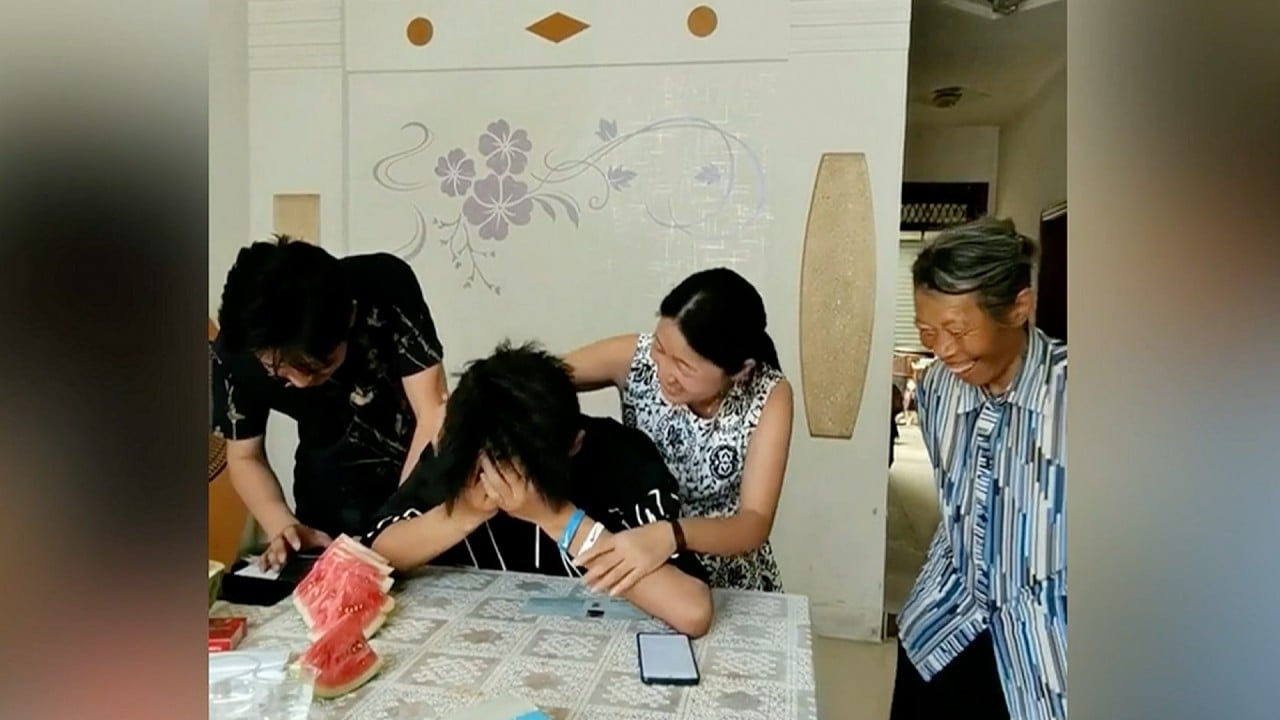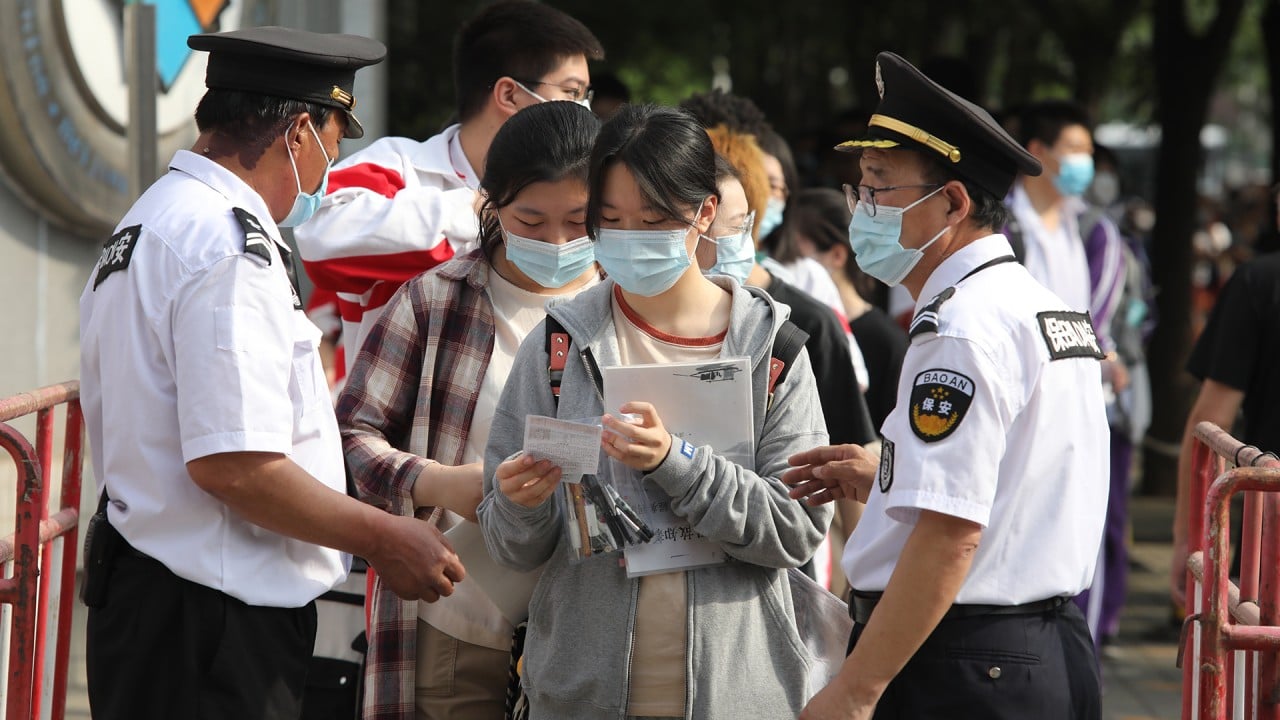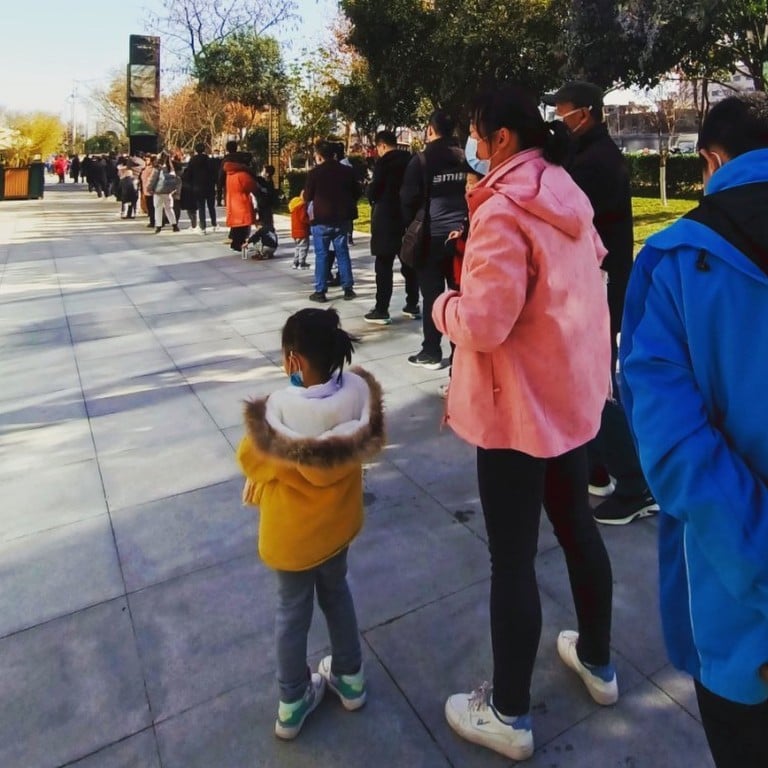
China’s innovative ‘happy schools’ popular with parents leaving the academically demanding mainstream education sector
- As more focus is placed on cracking down on China’s exam-obsessed school system, alternative schools are becoming increasingly popular
- Despite a lack of official recognition and the high fees, parents are flocking to a growing number of innovative schools
When Zhang Fen visited the aptly named Happy School with her son Tian Tian, a Primary Two student, she thought: “This is the school for us.” The students spent less time studying, but they seemed happier and had more freedom at the alternative-style school.
It’s no secret that a growing number of Chinese parents are turning away from the country’s rigorous public education system, which has been accused of burdening both students and parents with heavy workloads and creating unnecessary anxiety. Other than independently-run schools, such as international schools, a third choice has emerged and gained popularity: innovative education.
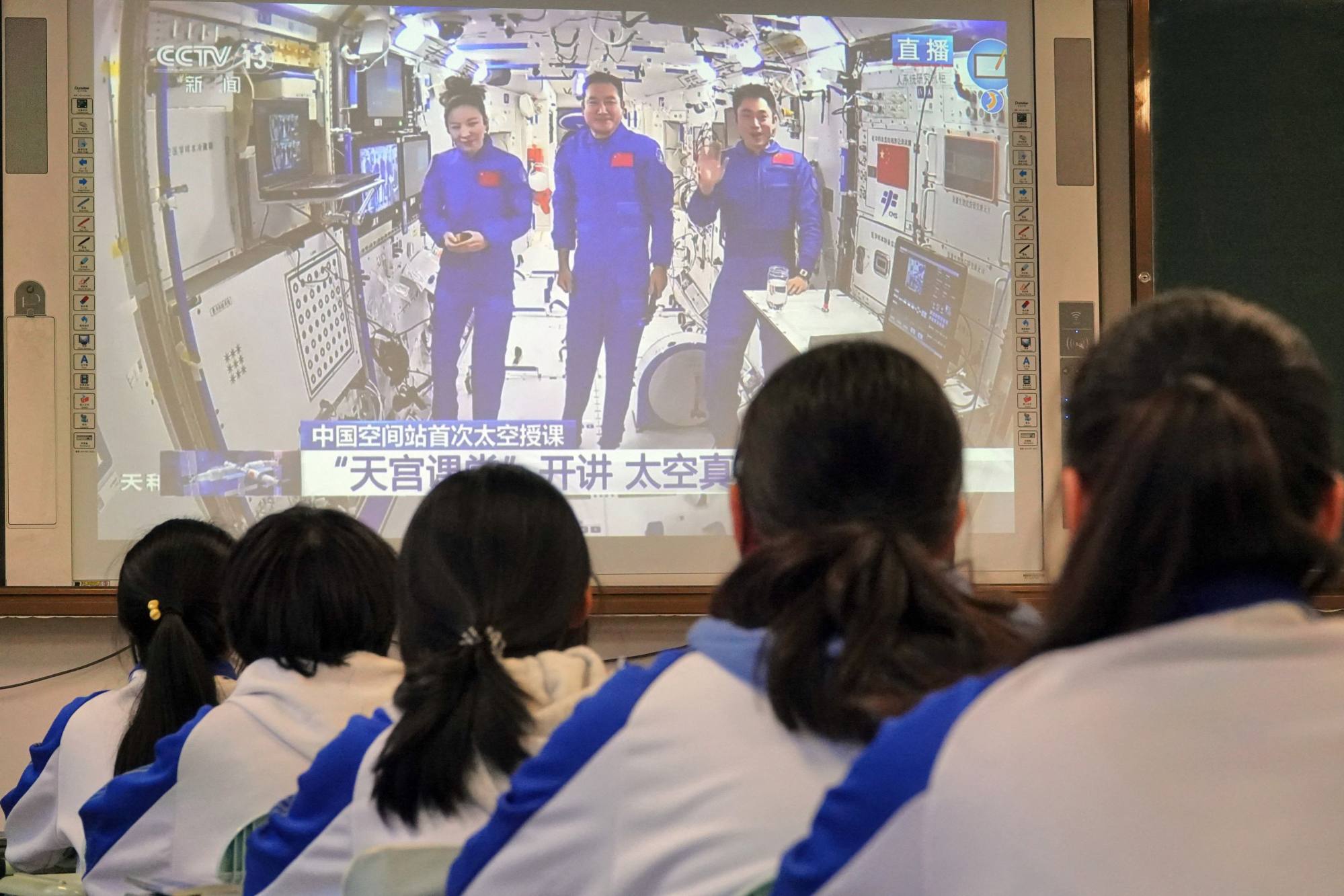
In Beijing, a year at Happy School, or similar innovative schools, will typically set parents back 70,000 (US$11,000) to 100,000 yuan (US$15,730), or more. Despite the high cost, they have been attracting middle-class families since 2005, WeChat blog Real-life Stories reported recently in a story about Happy School.
Tian Tian spent two years in a prestigious public school in Haidian district, Beijing’s Mecca for after-school education, where he was bullied and struggled to make friends. At Happy School, he thrived in the friendlier environment, Zhang said.
Like other innovative schools, there are no rankings or exams at Happy School. Public school textbooks are also rarely used. Instead, teachers use original material to teach everything from news events to Chinese classics.
With 400 students from kindergarten to Year Nine, and a US branch in New Jersey, Ririxin School is one of China’s most prestigious innovative schools. It was founded in 2006 with a mission to promote a more natural approach to education, with a focus on each child’s scholastic and personal development and overall well-being.
China busts illegal entrance exam as part of education crackdown
However, despite the growing popularity of innovative schools there remain problems around their perceived validity and recognition. This form of education is not registered with the central government and cannot claim to be a formal school. Instead, it has to settle for xue tang, which ironically is the name used for more traditional private schools.
Despite lacking formal government registration, innovative schools have expanded beyond Beijing, Shanghai, Guangzhou and Shenzhen, China’s four major metropolitan areas.
Dali in Yunnan province, southwestern China, has become the preferred choice of many “elephant parents” — the antithesis of “tiger parents”.
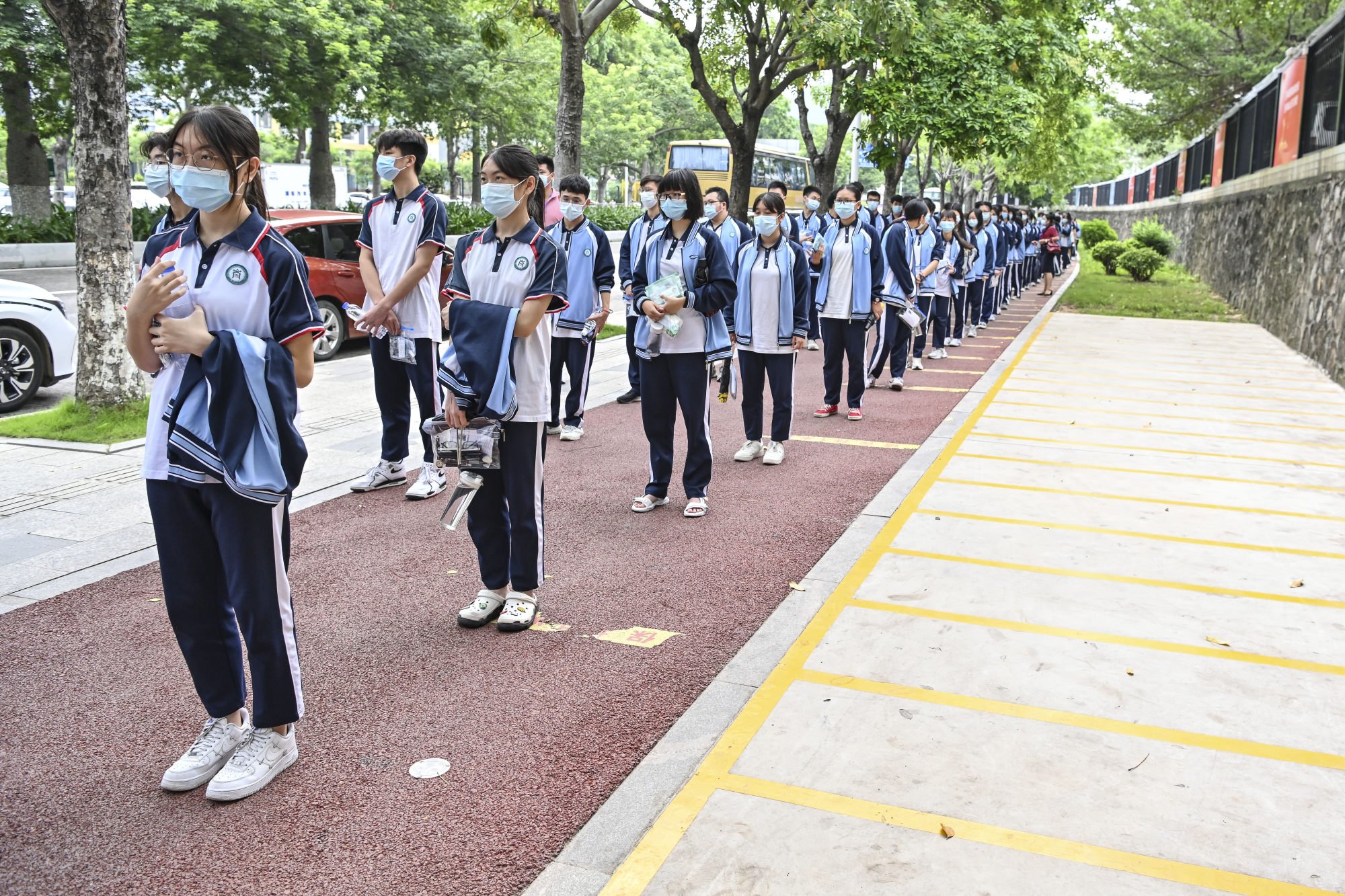
A popular travel destination nestled between Cang Mountain and Er Lake, Dali is seen as a paradise among China’s flourishing innovative school industry.
Melody Liu, the mother of a six-year-old daughter, Mango, moved to Dali earlier this year.
“We moved to Dali for the ecosphere of education, family and community. Before coming to Dali, school education and family education were isolated to me, but here, they work together,” she said.
“I’ve become friends with Mango’s teachers, we can talk about everything, from weather to education. In Dali, we have play dates for children all the time, the parents just gather to share our life stories and our views on education.”
Mao Mao Guo Er, one of the most well-known innovative schools in Dali, describes itself as “an education community of 180 children aged two to 12, with more than 40 teachers.”
Founded in 2012, the school values students’ ability to experience happiness and creating a motivation for lifelong learning. However, innovative schools are not within everyone’s reach.
Prices are steep, with the monthly fee for a kindergarten student at Mao Mao Guo Er 4,500 yuan (US$708), which is more than double the average monthly income in Dali in 2020, according to government statistics.
‘I am not a good headmaster’ says tearful principal after food poisoning scare
According to Wang A Wan, a travel blogger and the mother of a five-year-old son, Derek, “money talk” is deemed shameful in Dali. Innovative schools are not only financially challenging for parents; some believe the teachers are not paid enough.
When Wang found out that most teachers at Derek’s school are paid 3,000 yuan (US$550) per month, she questioned whether they should be paid more. Wang declined to disclose the name of her son’s school.
“Most people in the community, however, say that salary shouldn’t be a priority, that passion is what matters the most for a teacher,” she told the South China Morning Post.
“The more innovative the education, the more demanding it is for teachers,” said Wang. Besides passion, teachers need a wide range of knowledge over a variety of subjects, a flexible way of thinking, and to provide effective guidance for their students.
“I don’t think their current salary is attractive enough to keep good teachers around,” Wang said. “I really appreciate the education philosophy of the school, but not every teacher is able to see it through.”
After spending almost one year in Dali, Wang and her family moved back to Shenzhen, Guangdong province, southern China, in April last year because she felt the reality of the school had failed to match her expectations.
In an advertisement seeking kindergarten teachers in 2020, Mao Mao Guo Er listed requirements for candidates as “full of energy”, “lifelong learning” and a “love for children” as the top of the role description. Teaching experience or a certificate were described as not mandatory, but a “belief in your talent as a teacher” was.
For Xu Xiao, who has a four-year-old daughter named Joy, who studies at Yunduo Kindergarten, one of Dali’s most famous innovative schools, her biggest concern is teacher availability.
“Many teachers are travellers, they stay here for a couple of years before moving on,” Xu said.
Teachers are not the only ones who do not stay at innovative schools for the long term. Half of Joy’s class plan to emigrate, while the rest will transfer to international schools, with only a few planning to stay on.
For Sophia Zeng, mother of Zaizai, seven, dedicated education at an innovative school has significant benefits.
Backlash after teacher tells schoolgirls to have ‘clean heart and body’
“It’s like a utopia in Dali, where the whole community comes together in the upbringing of our children,” she said.
Zeng uprooted her family from Chengdu to move to Dali in 2017 and enrolled Zaizai in a flourishing innovative school, which she declined to name.
“He has grown so much in the past few years here in Dali, from his ability to perceive natural beauty to creativity and inner drive,” Zeng said.
“The experience in Dali has also supported me and my husband in learning how to become better parents,” Zeng said, adding that the family had grown closer.
In his innovative primary school, Zaizai’s teachers adopt the problem-based learning approach. With his 19 classmates, he studies Chinese, mathematics, English and other subjects in what are called comprehensive classes. The classes are based on projects that research topics from the Big Bang to the extinction of dinosaurs.
Armless teacher educates poor youth while inspiring China
Last July, his term-end exam took the form of a scavenger hunt, in which the students’ knowledge, concentration, physical fitness and social skills were all put to the test.
Observers were assigned to follow the students and take notes. No report cards were sent to parents or students afterwards, but families were invited into a WeChat group to “observe” the exam in real-time.
“What I love most about my school is that we are all free to do what we want to do, to be what we want to be,” Zaizai said.
“I don’t mean to glorify the innovative education in Dali,” Zeng added. “It’s not without flaws, no school or education is perfect, but at the end of the day, we chose what works best for our family.”
Even though many students thrive in innovative schools, and parents like Zhang, Zeng, Wang, Xu and Liu appreciate seeing their children blossom under the unconventional approach to education, not everyone remains in the alternative school system.
After four years at an innovative school, Zhang has decided to re-enrol Tian Tian in a public school at the end of primary school, just like more than 30 of his classmates. After a positive early childhood at Happy School, it’s time for Tian Tian to face the academic competitiveness of the public school system, she said.



